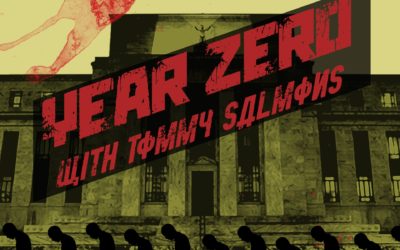In political discussions with Democrats, I say that I’m a classical liberal.
In political discussions with Republicans, I say that I’m a classical liberal.
Sometimes I add, “You know, like the Founders.”
Democrats (aka left-liberals) like the sound of “classical liberal.” It makes them think that I’m on their side and not a right-winger, thus making them more open to different ideas.
Republicans (aka conservatives) like the sound of “like the Founders.” It makes them think that I’m on their side and not a left-winger, thus making them more open to different ideas.
Unless I’m intentionally trying to irritate someone, I don’t say that I’m a libertarian, although that’s my core philosophy, a philosophy of non-aggression, self-ownership, civil liberties, and using government force only for the protection of life, liberty and property.
When Democrats and Republicans hear the word “libertarian,” what comes to their mind is wacko, or anarchist, or pacifist, or utopian, or open borders, or free love, or pot being on the menu at school cafeterias.
Why use a word that shuts down dialogue?
Moreover, there is a difference between political philosophy and politics. Political philosophy is what one believes and how one sees the world. It is a goal or ideal.
Politics is how one gets there. It is the messy process of building coalitions, compromising, and making tradeoffs. It is often two steps forward and one step back. It is a recognition that people come with different beliefs, values, needs, wisdom, and cognitive abilities; and that most humans have innate and contradictory desires for freedom on the one hand and government-provided security on the other.
Hardcore libertarians see politics as a sellout, as a violation of core principles. They don’t seem to see that they are different from most people. They tend to be self-sufficient, confident in their ability to make a living, independent in thoughts and deeds, skeptical about religion, and more interested in intellectualism than in social affirmation and fitting in. Also, as is evident at any large gathering of libertarians, they are predominately white and male.
I’ll let others debate whether libertarians are subhuman or superhuman. Either way, they are not like most people.
As such, libertarians get into the intellectual weeds and leave non-libertarians scratching their heads. In talking about traffic congestion, for example, libertarians might say something like this: All property should be privately owned, including streets and freeways, with access for others based on fees and tolls.
In other words, libertarians often sound like eggheads. In actuality, they’ve given the issue a lot of thought, can recite the history of property rights going back to the dawn of man, and have weighed the pros and cons and concluded that transportation would be cheaper and more efficient under private ownership.
Most people don’t have the time or interest in such intellectualizing. They find themselves stuck in traffic every morning and want something done now, not decades from now. At the same time, they are preoccupied with other non-esoteric issues, such as paying their bills, trying to hold on to their job, keeping their kids off drugs, and not pissing off their spouse. They want someone to empathize with them and solve their problems, not someone to spout libertarian theories, even if the theories are well-founded.
An English proverb advises against hiding one’s light under a bushel. Libertarians shouldn’t follow that advice. Instead, they should hide their philosophy under a bushel, except in private with other libertarians. With the general public, they should advocate public policies that are based on libertarian philosophy but resist the urge to yak about the philosophy.




